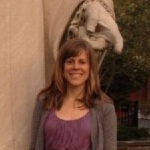 Monday, January 13, 2014 12:00 noon-1:30 pm Swift Hall, Room 200
Monday, January 13, 2014 12:00 noon-1:30 pm Swift Hall, Room 200
What do queer culture, Star Trek fandom, and the Quiverfull movement have in common? Come find out at the next Theology Workshop, where Olivia Bustion will present her work-in-progress, “Counterpublic Theology and Pacifist Ways of Knowing (with John Howard Yoder and Virginia Woolf).” The essay maps out a new way for theology to travel publicly, namely, ‘counterpublic theology.’
Like public theology, it (a) brings theological motifs to bear on extra-ecclesial matters and (b) addresses an audience that exceeds creedal affiliations. Unlike public theology, it recognizes that the discursive protocols of the public sphere come at a higher price for anyone who isn’t (for instance) white, male, or middle-class.
Accordingly, counterpublic theology finds a self-reflexive, nonfoundationalist, antisystematic solution to the asymmetrical burdens of publicness. Instead of favoring one kind of publicness or one style of rationality, counterpublic theology (a) learns and rehearses the marked logics of different counterpublics, (b) listens to the interplay of their different discursive protocols, and (c) constructs new theological options out of what emerges as salient from the incommensurabilities and points of contact between them.
The first half of this essay describes and defends the method of counterpublic theology. The second half of this essay offers a test case, juxtaposing the pacifism of Virginia Woolf—England’s preeminent literary modernist, a feminist author of antiwar novels and essays—with that of John Howard Yoder—a Mennonite theologian criticized for “defend[ing] the New Testament pattern of patriarchal submission” (Schüssler Fiorenza 1984: 83)—to construct a feminist and Christian pacifist way of knowing.
A light lunch will be served.
We recommend that you read the paper in advance of the workshop; you can find it here. If you are planning on attending the workshop and are not affiliated with the University of Chicago, please contact us to request access to the paper.
